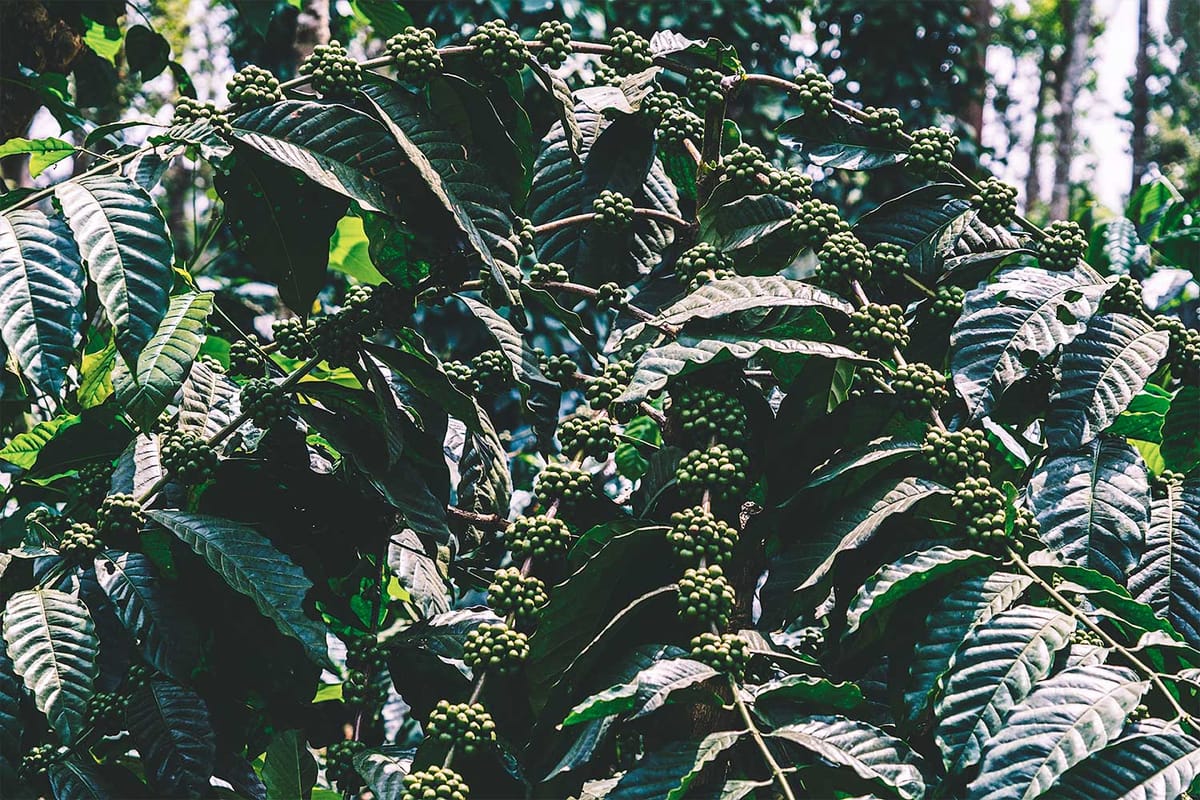Peacock Proliferation, Elephants, Butterflies, and Coffee
The peafowl has proliferated, the number of snakes has diminished, the toads are flourishing — all because the foxes have disappeared.

There's a spurt in the population of peafowl on the plantation. In the past, we'd have an occasional one that would fly over a patch, and then vanish, all in a moment. Now you come upon a bunch of four or six that, when you're twenty or thirty metres to where they're concealed, take to sudden flight making a blast of sound. And at night you hear more of their plaintive cries.
"The foxes are gone, that's why," the folks are saying, and they're right because we hear their howling no more at night. "So the peafowl is flourishing." The number of snakes is thereby diminished (although they caught a second big viper a few days ago and pulped it with stick and stone, again on the eastern boundary). Fewer snakes mean more toads, and more mice, maybe, but I haven't seen them.
But where have the foxes gone? I haven't heard of anyone hunting them hereabouts. I'll ask the next time I'm at the plantation.
I hope the peacock isn't a fan of coffee, or of pepper. Only the other day, I read these big birds that belong here on the subcontinent are proliferating in distant New Zealand, and eating up corn and maize and their shoots — and the New Zealand farmers are all in a tizzy. Like we are in our coffee corridor in South India, suffering the onslaught of elephants that come anytime they please and camp on our plantations, crushing crops, breaking fences, felling shade trees, killing or maiming the occasional human.
There was an underperforming patch that we recently decided to clear and plant coffee on it afresh, after the Brazilian fashion, which is to allow a sapling to grow six months, bend it and secure it, allow multiple stems to spring up on the bent main, prune those stems down to a healthy three, thereby multiplying the yield per plant.
Now the clearing is going on at top speed on the patch, with machines uprooting existing coffee plants. They're pulling out the roots of the silver oaks as well, which were felled because the current wisdom is that the plantation is better off if populated by other trees such as the atti.
The driver of one such machine, an earthmover, finished his shift at around 6:30. He started walking to where his vehicle was parked, thence to go home. He tap-tapped on his cell phone as he went up, absorbed in the screen. Nearing the small Shiva temple on the estate, he looked up a little when he heard a rustle, and saw four fat legs. A trunk swayed before them, framed by long white tusks.
He turned and ran and leapt into an open pumphouse by the track — hardly a safe place, because, if the tusker had followed him, he would've reached into the little structure and lifted out our man, who was lucky that evening. The giant creature had other plans and took his heavy steps someplace else.
Our man had no inkling of those plans, of course. Weeping, he called the writer (as we address the plantation supervisor), and others, and told them where he was, and why, speaking as best he could, shaking and sobbing.
After a time the writer reached him, took him home, and he and his wife gave him coffee, covered him in a blanket, and soothed him, and sent him to an available lodging in the labour line for the night.
"There are ten elephants here now," we heard when we arrived Thursday. The rain had receded, the air was crisp and dry, and you could sense the fear the air was soaked in. Still, all the works were going on: they were spraying Imida and neem oil on the pepper vines to kill off the mealybug, pulling out unproductive coffee branches; preparing to shave off growth on the lower levels of the shade trees for more air and light for the coffee.
They wear their fear well in these parts these days.
We're going to have butterflies soon, big ones in large numbers, flitting and soaring over the coffee, as the time for picking Arabica approaches. There were caterpillars everywhere, heralding the coming of their transfigured selves. I hope to see them when we're there next, mid-November.
We're back in Bangalore now, and wearing the urban hat. The only fauna that we get to notice are the strays, and the kept dogs, and the odd scrawny cat. They throw up an extra-quizzical gaze when I pass them. "What's that silly thing you're wearing on your face?" they appear to be asking.